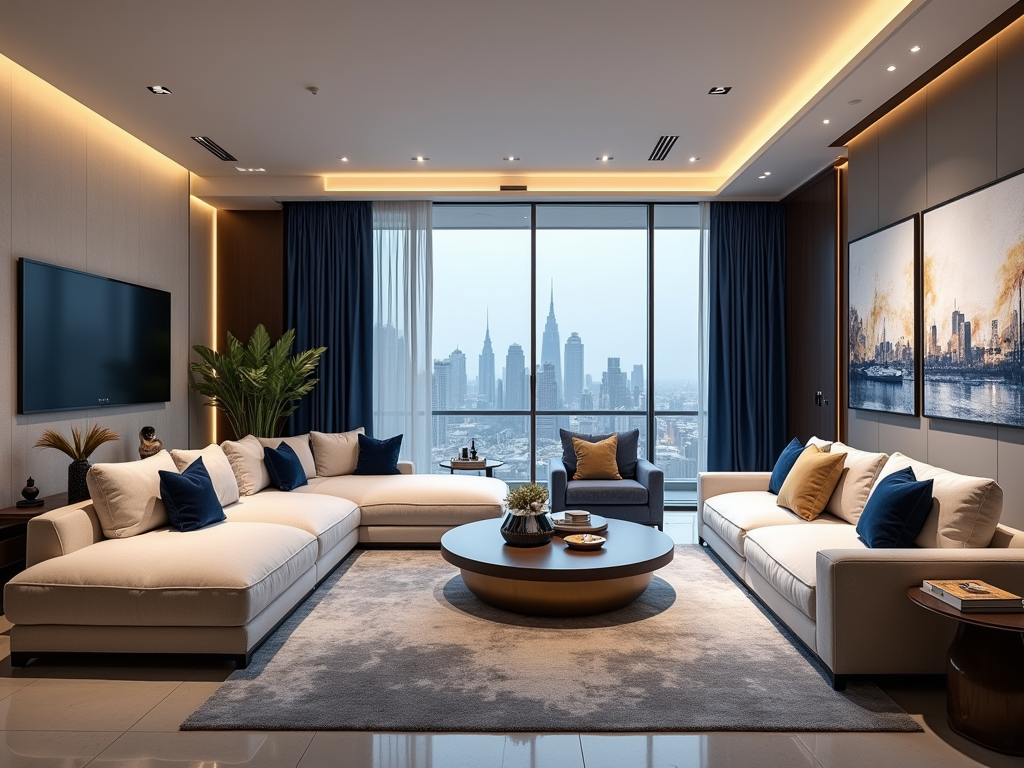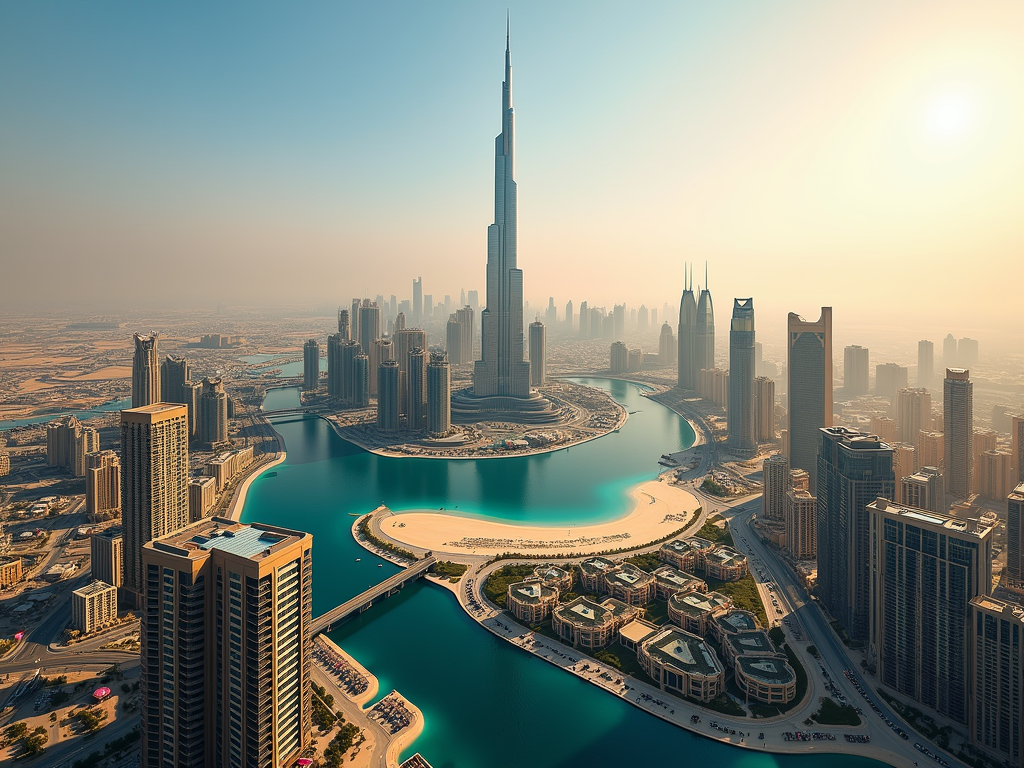Dubai’s luxury real estate market is poised for tremendous growth, driven by a combination of innovative developments, diverse investment opportunities, and a global appeal that draws affluent buyers from around the world. This article will explore the factors propelling the future of this dynamic market, including emerging trends, regulatory changes, and technological advancements that are expected to shape the landscape of luxury properties in Dubai.
Trends Influencing Luxury Real Estate in Dubai

The current market trends are not only defining luxury real estate in Dubai but are also setting the stage for its future. The demand for high-end properties is increasing due in part to the influx of expatriates and wealthy investors looking for unique and opulent options. Here are some key trends:
- Sustainable Living: There’s a growing emphasis on sustainable development, with luxury projects incorporating green technologies and eco-friendly designs.
- Smart Home Technology: Advanced home automation systems that enhance security, comfort, and energy efficiency are becoming standard in new luxury builds.
- Mixed-Use Developments: Combining residential, commercial, and leisure spaces is creating vibrant communities that cater to a luxury lifestyle.
- Global Citizenship Programs: Favorable Golden Visa schemes attract international buyers seeking residency, fueling demand for luxury homes.
- Exclusive Amenities: Developers are now offering high-end amenities such as private pools, concierge services, and wellness centers to enhance lifestyle appeal.
Regulatory Changes and Their Impact

Dubai’s government continually revises property laws to attract foreign investment, which is central to the strength of the luxury real estate market. Recent regulatory changes have further facilitated investments in high-end properties. For instance, the introduction of long-term residency options has encouraged buyers to invest in Dubai’s luxury market with the perspective of living there year-round. Additionally, the reduction of property registration fees and enhanced transparency surrounding transactions have fostered a more favorable environment for buyers.
Moreover, the ‘Dubai 2040 Urban Master Plan’ aims to double the city’s population while promoting sustainable urban development, which includes the construction of more luxury residential spaces, commercial areas, and parks. With ongoing adjustments to regulations, the confidence among investors grows, which in turn boosts the overall appeal of the luxury property market.
The Role of Technology in Real Estate
Technological advancements are transforming how luxury real estate is marketed, bought, and sold in Dubai. Virtual reality (VR) and augmented reality (AR) technologies allow potential buyers to take immersive tours of properties without leaving their homes, enhancing the experience of buying luxury real estate. Additionally, blockchain technology is becoming a game-changer in real estate transactions, facilitating secure purchases, and providing transparent property histories, which is essential for high-value transactions.
Moreover, artificial intelligence (AI) is being used in customer service and property management, improving operational efficiency and buyer engagement. Data analytics also play a vital role in understanding market demands, allowing developers to anticipate trends and craft tailored offerings that resonate with affluent investors.
Dubai has established itself as a global city that appeals to wealthy buyers from diverse regions, including Europe, Asia, and the Americas. Factors such as tax-free incentives, a cosmopolitan lifestyle, and a booming tourism sector enhance Dubai’s attractiveness as a luxury real estate hub. The city’s reputation for innovation, luxury, and safety also appeals to high-net-worth individuals looking to invest in a premium lifestyle.
As demand continues to rise, global luxury brands are also taking note, consequently leading to collaborations with real estate developers to create signature properties that boast both luxury and exclusivity. Upscale hotels, celebrity-designed residences, and branded residences are just a few examples of how Dubai is drawing the world’s elite. This blend of global appeal and local advantages assures a bright future for Dubai’s luxury real estate market.
Conclusion
In conclusion, the future of Dubai’s luxury real estate market looks promising, with favorable trends, regulatory advancements, and technological innovations driving its growth. The city’s global appeal combined with a commitment to sustainable and smart living environments positions it as a leading destination for luxury real estate investment. Whether you are a buyer, investor, or industry stakeholder, understanding these dynamics will be crucial in navigating the evolving landscape of luxury real estate in Dubai.
Frequently Asked Questions
1. What is the expected growth rate of Dubai’s luxury real estate market?
While specific growth rates may vary, analysts project continued strong demand driven by increased foreign investment and ongoing urban development projects.
2. Are there any specific neighborhoods to watch for luxury real estate investment in Dubai?
Yes, areas such as Palm Jumeirah, Downtown Dubai, and Dubai Marina are renowned for their luxury properties and are expected to attract significant investment in the coming years.
3. How do regulatory changes affect foreign property buyers?
Regulatory changes often simplify the buying process, making it more attractive for foreign investors through long-term residency options, reduced fees, and enhanced transaction transparency.
4. What technological advancements are impacting the luxury real estate market?
Technologies such as virtual reality, blockchain for secure transactions, and AI for enhanced customer service are revolutionizing property buying and selling experiences in the luxury segment.
5. Is sustainability a concern in Dubai’s luxury real estate developments?
Absolutely! The focus on sustainable living is becoming increasingly prominent in luxury developments, with many projects incorporating eco-friendly practices and technologies.
